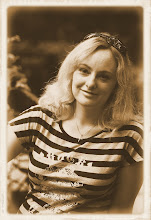I have a dilemma when reading historical works - I always feel that to understand what I am reading, I really should have a better understanding of some earlier chapter of history. But where should I actually start? At the dawn of time and work my way down the ages?
Last year I read a book called "A Short History of the 20th Century" (by Bill Bryson, I think...). This easy to read, novel sized work provided a snapshot of all the momentous events of the century, and while it left me wanting more detailed analysis, it gives a great framework for understanding the context of those events.
I don't really go for historical fiction, although I enjoy the stories, I am concerned, as other responses have suggested, that I might pick up erroneous ideas of history - my historical knowledge is sadly lacking, I don't need to fill the void with errors! In some cases though, historical fiction can open your mind to the real impact that history has had on real people. When I read "The 19th Wife" by David Ebershoff, I realised I had never considered what it would be like on a daily basis to live in a polygamous relationship and I was deeply touched by the emotions that the female characters underwent as the first, second or third wife. Historical fiction is able to go behind the the names, dates and numbers, to look at the personal aspect of history.
Some of the best historical insight to be gained is through autobiographies that provide a strong sense of history - "Wild Swans" springs to mind. I really enjoy this kind of work, where you gain an insight into the history of a certain time, and a very vivid personal account of the way that those events effect everyday people.



No comments:
Post a Comment